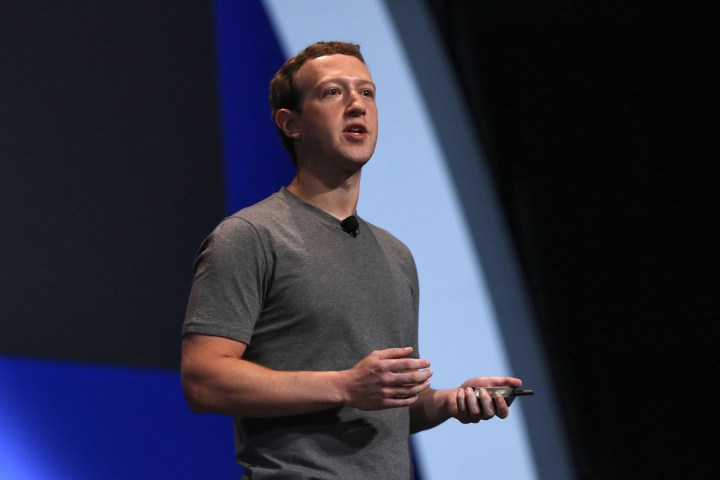
This time round, Zuckerberg has put forward a detailed plan as to how the company plans to track and tag fake news on the News Feed, and the updates it has in the pipeline.
“The bottom line is: We take misinformation seriously. Our goal is to connect people with the stories they find most meaningful, and we know people want accurate information,” said the Facebook founder.
Ultimately, it sounds like Facebook is readying an algorithmic update that can predict the type of content people have historically flagged as fake, and then use those trends to automatically label bogus content itself.
“The most important thing we can do is improve our ability to classify misinformation,” claims Zuckerberg. “This means better technical systems to detect what people will flag as false before they do it themselves.”
The company already employs machine learning across its platform — it is, for example, used to screen and filter offensive photos. Therefore, it’s easy to see Facebook taking the same approach to fake news.
It’s going to be a tough balancing act for Facebook, which does not want to alienate users by restricting content (especially when so much of it is political). However, the issue of fake news online (and in particular on
Zuckerberg admitted the process would not be easy: “The problems here are complex, both technically and philosophically. We believe in giving people a voice, which means erring on the side of letting people share what they want whenever possible.” He continued: “We do not want to be arbiters of truth ourselves, but instead rely on our community and trusted third parties.”
Consequently, it sounds like Facebook will not simply delete fabricated content, instead choosing to label it as such, leaving it up to its users to make up their own mind.
Among the upcoming projects outlined by Zuckerberg in the post are warnings that alert users to content that has been flagged as false.
Facebook plans to work with third-party fact-checking organizations and journalists to detect bogus content. It also plans to improve its reporting system to make it easier for users to report fabricated stories. Zuckerberg did not go into the technical details regarding the so-called “warnings,” simply stating that they would be shown to users when they attempt to read or share fake news.
Zuckerberg claims the company will also improve the type of “related content” it surfaces under links in the News Feed. Having recently blocked fake news sites from using its advertising network, he added that Facebook is exploring additional methods to disrupt the economics of misinformation.
Zuckerberg signed off by stating: “Some of these ideas will work well, and some will not. But I want you to know that we have always taken this seriously, we understand how important the issue is for our community and we are committed to getting this right.”
Editors' Recommendations
- Facebook News just expanded. Here’s how to customize your news tab
- Snopes says ex-partner Facebook is ‘not committed’ to fighting fake news
- Here’s how Mark Zuckerberg plans to defend Facebook Libra in front of Congress
- Facebook is hiring actual human journalists to fight fake news
- Deepfake or fake news? Zuckerberg says Facebook might treat them differently
